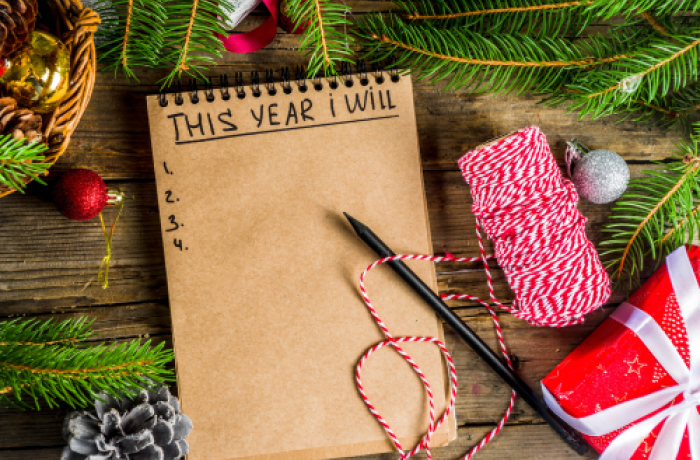
For us adults, a New Year's resolution usually means eating healthier, getting in shape or finding a new job. But what about our children? At what age can our children start set goals? And can they stick to them?
Goal setting for children can come with some fantastic advantages. It helps teach children key qualities they’ll need throughout their school, social and work life, including:
- Self-Motivation
- Decision Making
- Focus
- Sense of Purpose
- Perseverance
- Accomplishment
So, what kind of resolutions should they be setting? Every child has some aspect of their behaviour that might be holding them back, or a habit we’ve been trying to knock out for a long time. But, we don’t have to focus on the negatives, you might want to start a new family tradition or reach a sporting or educational achievement. Here are some examples to start the conversion at your dinner table this Christmas:
School Focused resolutions:
• I will do all my homework on time
• I will make my handwriting neater
• I will read a new book every week/month
• I will join an afterschool club
• I will put myself forward for events at school
• I will get a better grade in my maths/english tests
• I will learn about a new topic that interests me at home (animals, cars, gardening)
• I will get an award at school
Household Resolutions
• I will tidy my bedroom
• I will make my bed everyday
• I will help take the bins out every week
• I will put away my own washing
• I will wash up after dinner
• I will cook dinner once a week
• I will keep my toys tidy
• I will only watch 1 hour of television a day
• I will help more with our pet
Family Focused resolutions:
• We will eat dinner as a family every day
• We will visit or call grandparents once a week
• We will go for a 20 minute walk after school every day
• We will all have jobs to do around the house
• We will all spend 15 minutes talking about our day
• We spend one evening together with no television every week
• We will try one vegan dinner every week
Child-focused resolutions:
• I will wash my hands more
• I will eat more fruit and vegetables
• I will limit my time on the computer or television
• I will pick a new sport or physical activity to try
• I will exercise for 30 minutes everyday
• I will try a new food every week
• I will set an alarm everyday
• I will learn to fix my own bike/pump my own tyres
Behaviours focused resolutions
• I will be kind to my sister or brother
• I will tell my parents when i am feeling upset or angry
• I won’t hit or name call
• I will be more independent at home
• I will visit or call my grandparents once a week
• I will listen to my mummy and daddy first time
• I will not answer back
• I will be more confident in myself
• I will celebrate my achievements with the family
Now they’ve chosen a resolution, how do we help our child stick to it? We all learnt what a SMART Objective is in school. Well, let’s apply those same principles to your child’s resolution. It needs to be Specific, Measurable, Achievable, Relevant and Time-bound.
To help keep the resolution at the front of their mind, make a chart for the fridge or frame a poster in their bedroom. You could even create a scrapbook to share progress towards their goal. And finally, set a resolution for yourself. The best way you can help them is by example, setting your own New Year's resolutions that you discuss regularly as a family and work through together.
Here are some useful articles and printable resources:
• Printable Chart
• Reward Chart
• Super Nanny Advice
• National Geographic
• Twinkl